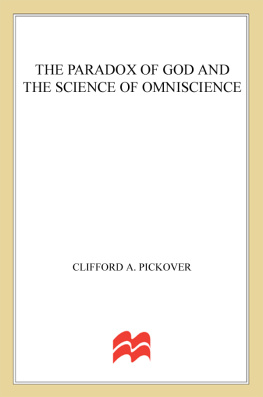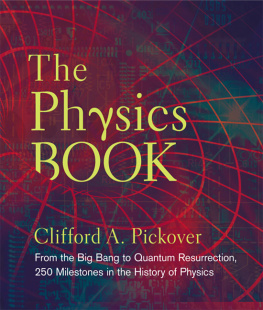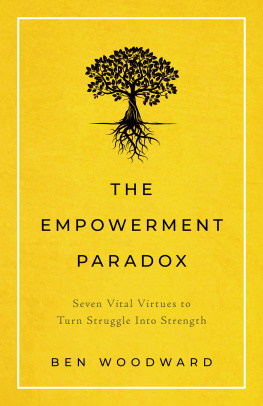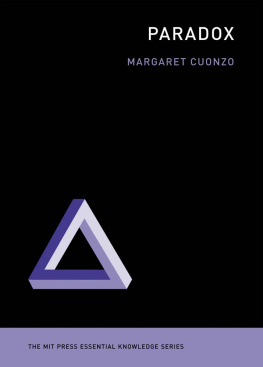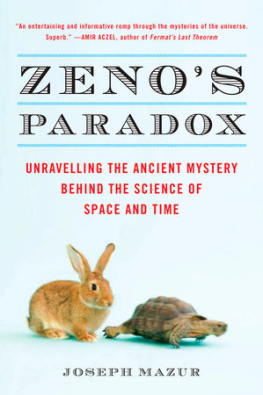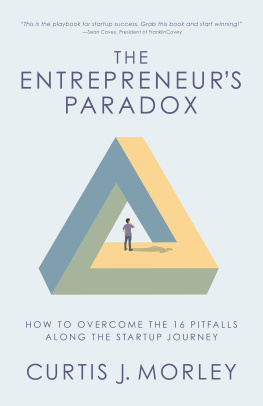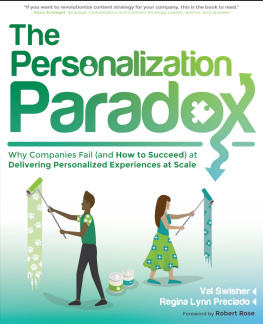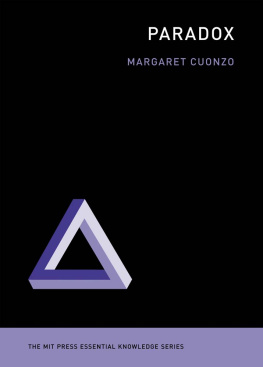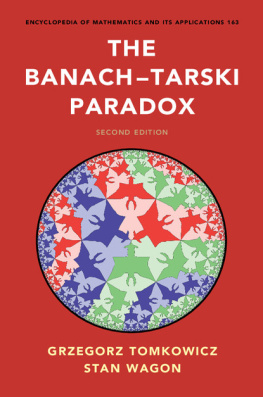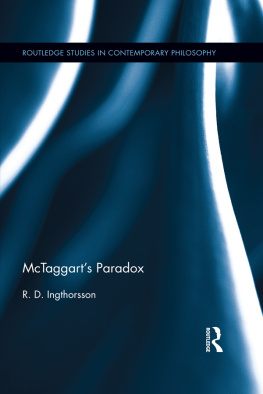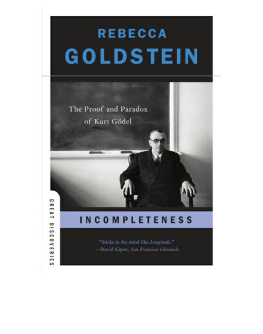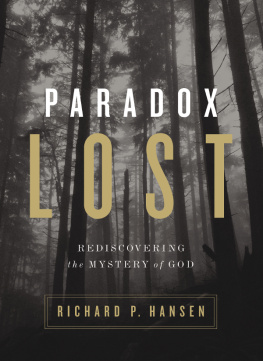Contents
Guide

The author and publisher have provided this e-book to you for your personal use only. You may not make this e-book publicly available in any way. Copyright infringement is against the law. If you believe the copy of this e-book you are reading infringes on the authors copyright, please notify the publisher at: us.macmillanusa.com/piracy.
Contents
This book is dedicated to all of you who believe that that there are two errors in this sentence.
This book is also dedicated to omniscient beings who are certainly able to read this message if they are all-knowing:
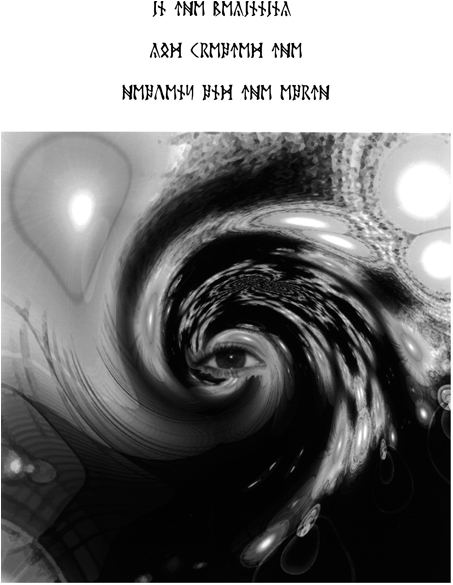
Lord, thou knowest all things.
John 21:17
I take my accurate form, Memnoch continued,
when I am in Heaven or outside of Time.
Anne Rice, Memnoch the Devil
The omniscient have no fear.
Charles Krauthammer, TIME
It is the final proof of Gods omnipotence
that he need not exist in order to save us.
Peter De Vries, The Mackerel Plaza
Where did it begin? Was there nothing and then something? Even the Celestials, the noblest of beings to enter the human consciousness, did not know what was in the dark before the light was turned on.
Peter Lord-Wolff, The Silence in Heaven
I owe a special debt of gratitude to Martin Gardner (author of The Night Is Large and Knotted Doughnut s and Other Mathematical Entertainments ), Steven J. Brams (author of Superior Beings ), Karen Armstrong (author of A History of God ), and William Poundstone (author of Labyrinths of Reason ) for their books, which provide excellent background material to various paradoxes relating to omniscience. Background reading for Chapter 9 can be found in my book Time: A Travelers Guide, in which I also discuss the brain, volition, and time distortion. Quotations from biblical sources are usually from either the King James version or the New International version.
I am grateful to Brian Mansfield for his wonderful illustrations at the beginning of each chapter. I thank Edward J. Gracely, Eric Kaplan, Royce Denton, David Glass, Reinhold Niederhagen, Craig Becker, and Dennis Gordon for useful advice and comments. I thank Samuel Marcius for various font symbols.
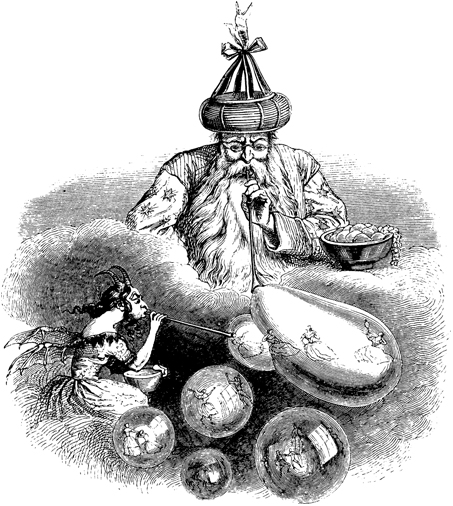
The secret of cosmogenesis. The universes are bubbles blown by God, who does not realize that a demon is insufflating both love and hate into them. From Jean-Ignace Isidore Grandvilles Un Autre Monde.

God will provide for this kitten.
What makes you think so?
Because I know it! Not a sparrow falls to the ground without His seeing it.
But it falls, just the same. What good is seeing it fall?
Mark Twain, The Mysterious Stranger
Knowing what Thou knowest not is, in a sense, Omniscience.
Piet Hein, Grooks
When I was ten years old, I recall leafing through a collection of biblical illustrations created by the famous French artist Gustave Dor, who lived from 1832 to 1883. I remember the beautiful creation scenes, the scary visions of Noahs flood, the huge battles with Joshua committing the town of Ai to flames. Perhaps the scene that stuck in my mind most was the one of Moses coming down from Mount Sinai with the Ten Commandments (). The tablets were supposed to be the work of God.
Even at this early age, I knew that God was supposed to be omniscient, or all-knowing. I asked my father what this really meant. Did God know Eve would eat the apple? That Cain would kill Abel ()? Could God be surprised?
My father had no definitive answers.
Before proceeding further, its useful to have a working definition of God. This is certainly a difficult challenge! Throughout history, God has meant something different to different societies. In some sense, our concept of God has evolved, and so has our definition of atheism. Karen Armstrong in A History of God suggests that had the notion of God not had this flexibility, it would not have survived to become one of the great human ideas. Is the God who is rejected by atheists today, the God of the patriarchs, the God of the prophets, the God of the philosophers, the God of the mystics or the God of the eighteenth-century deists? Like a lump of heated silver changing from solid to liquid to gas, atheism has been the in-between state for religions. Jews, Christians, Muslims, and Bahais were all called atheists by their predecessor religious forms.
Whatever you believe, clearly we humans often experience feelings and ideas that transcend our ordinary lives. Of course, these experiences are not always regarded as divine. Psychiatrists may relegate them to heightened activity of the brains temporal lobes. Buddhists see the experiences as natural to humans and do not invoke a deity. For now, let us use a very common Western definition of God. Of those people in the industrialized West who say they believe in God, studies show that most are monotheists. For these people, God is usually understood to be:
All powerful, all knowing, and all good; who created out of nothing the universe and everything in it with the exception of Himself; who is uncreated and eternal, a noncorporeal spirit who created, loves, and can grant eternal life to humans.
The overwhelming majority of Americans who say they believe in God also believe God affects their lives. Numerous other definitions of God are given at the end of Chapter 15.
I should also note that God has historically been thought of as a male deity in religions such as Judaism, Christianity, and Islam. Because I will frequently be alluding to the God of these monotheistic faiths, I use the conventional masculine terminology He, although I can certainly sympathize with feminists who may be uncomfortable with this traditional bias.

Fig. I.1. Moses coming down from Mount Sinai. Reprinted from Gustave Dor, The Dor Bible Illustrations (New York: Dover, 1974), 40.

Fig. I.2. Cain and Abel offering their sacrifices to God. Reprinted from Gustave Dor, The Dor Bible Illustrations (New York: Dover, 1974), 4.
In this book I dont discuss some of the conventional, logical proofs of Gods existence. Instead, I discuss how we might understand the characteristics and limitations of omniscient beings. I also invite discussion about whether or not it is rational to believe in Gods existence. As Steven J. Brams points out in his book Superior Beings, The rationality of theistic belief is separate from its trutha belief need not be true or even verifiable to be rational.
What can we mere humans, with our limited three-pound mass of brain, truly understand about a being who may be timeless, higher-dimensional, and all-knowing? Followers of the Koran have often suggested that because God has no cause or temporal dimension, there is absolutely nothing we can say about Him. Our brains are not up to the task. The Jewish philosopher Bahya ibn Pakudah (d. 1080) believed that the only people who had a hope of understanding God were the prophets and philosophers. Everyone else was simply worshiping a projection of himself. Similarly, Muslim thinker Abu Hamidal-Ghazzali (10581111) thought that only special people, like mystics and prophets, could get a glimpse of God; nevertheless, most ordinary folk should not deny the existence of Goda blind man should not deny the rainbows existence simply because he cannot appreciate it.

